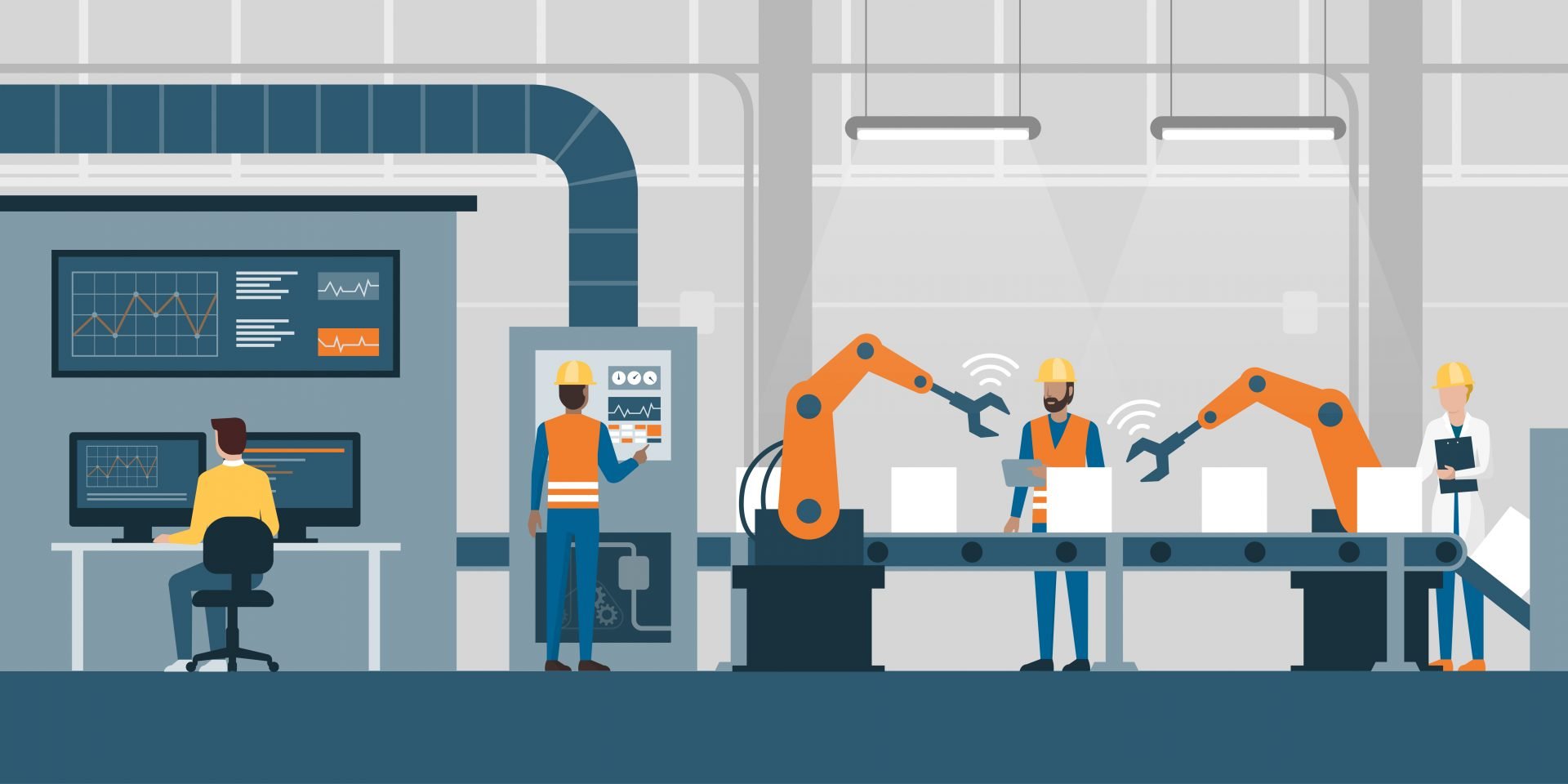
Setting sail for Industry 4.0? Don’t forget your shore crew
Has your organization set sail for Industry 4.0? Great! Maybe you’ve already made a huge investment in new technologies that allow you to keep up with the rapid pace of digitization and automation. But where does that leave your workforce? And what can you learn from other companies?
Facts & figures
There’s no doubt that Industry 4.0 will have a huge impact on your workforce. Here are some figures to give you an idea of that impact:
- By 2019, we will see no fewer than 6 million industrial robots, 40% more than in 2016. This is more than a 40% increase in less than three years’ time! (PwC, 2016).
- By 2030, 14% of the global workforce may need to switch to jobs that are not even related to what they did before, as digitization, automation and advances in artificial intelligence disrupt the world of work.
- 62% of executives think that they will need to retrain or replace more than 25% of their workforce by 2025.
- Only 16% of executives feel “very prepared” to address potential skill gaps. They struggle to figure out how job roles will change and what kind of talent will be required over the next five to ten years. (McKinsey, 2017).
How do you get people with the right mindset on board?
The real challenge of Industry 4.0 lies in the right mindset and the adaptability of the workforce. For this, companies need to ensure that the skillset of their organization is constantly developed to meet the needs of the moment.
1. Don’t underestimate your workers’ “internal compass.”
Some emerging technologies can be introduced in your factory with little or almost no retraining. Workers call on their internal compass to adopt new technologies intuitively. Think of cloud computing and how this is used by everyone every day. Your current workers may not yet have the skills to operate in a digitized factory, but they know a lot about it already!
2. Empower your workers to steer.
Workers will probably need to oversee the tasks done by robots for some time to come, but technical skills won’t be enough anymore. Creativity, complex problem-solving and critical thinking will become the top three skills workers will need. From being a wheel cog today, each employee will become a real pilot tomorrow in the overall production process.
3. Attract non-industrial profiles.
You will need new profiles and roles that are not traditionally part of the industrial environment. Think of data security managers, software developers, etc. In some cases, certain jobs might not even exist yet and are waiting to be created.
What can you learn from other industrial companies?
From the many workforce journeys we have undertaken with clients, there are three takeaways you should bear in mind:
1. Reskilling takes time.
New skills cannot be learned last minute on the eve of the compliance deadline. Reskilling requires weeks of training. If you don’t take the time, your workers will be averse to adopting the new technology or—at best—won’t use it in a consistent way.
2. Focus on flexibility & adaptability.
You should source new talent with digital expertise. But looking at the speed of change, you should also take sufficient time to assess skills such as flexibility and adaptability—both in your current workforce and in your new recruits. Are they willing to succeed no matter what new technology emerges?
3. Manage the change.
Too many projects that looked good on paper failed because the importance of change management was overlooked. With our change methodology, we make sure that your people pull together like a real crew when you’re heading for Industry 4.0.
→ In conclusion, as digitization, automation and AI reshape whole industries from the technological point of view, the only way to realize the potential productivity benefits is to have the right people with the right mindset and the right skills, as well as the right processes in place in-house to capture all those benefits.



